Security in Hromadas is a basic precondition to launch the electoral process. It goes beyond the physical safety. Security indicators shall be established in the law to make sure the decision to (non)conduct elections is as objective as possible. A decision-maker shall be named, too. These topics were discussed on May 21 at the meeting “Security as a Precondition for Post-War Elections: What Shall be a Mechanism for Responsible Decision-Making”.

The specific criteria for decision-making about the (im)possibility of conducting elections have been discussed in OPORA since 2020, when local elections failed to take place in 18 Hromadas of Donetsk and Luhansk Oblasts.
The matrix for security audit that OPORA keeps upgrading includes mandatory and optional criteria. Physical security is first and foremost. It means no shelling, a satisfactory social and economic situation (availability of mobile communications, access to Internet, health care and educational services), and the democratic processes in place. In a case a Hromada fails to pass the assessment on some stage, the audit may issue recommendations to eliminate the shortcomings.
The basic preconditions to conduct elections in the Hromada is the lifted martial law, no strikes (shelling, missile or drones) for at least 3 months, and Ukrainian government control over the Hromada’s territory.
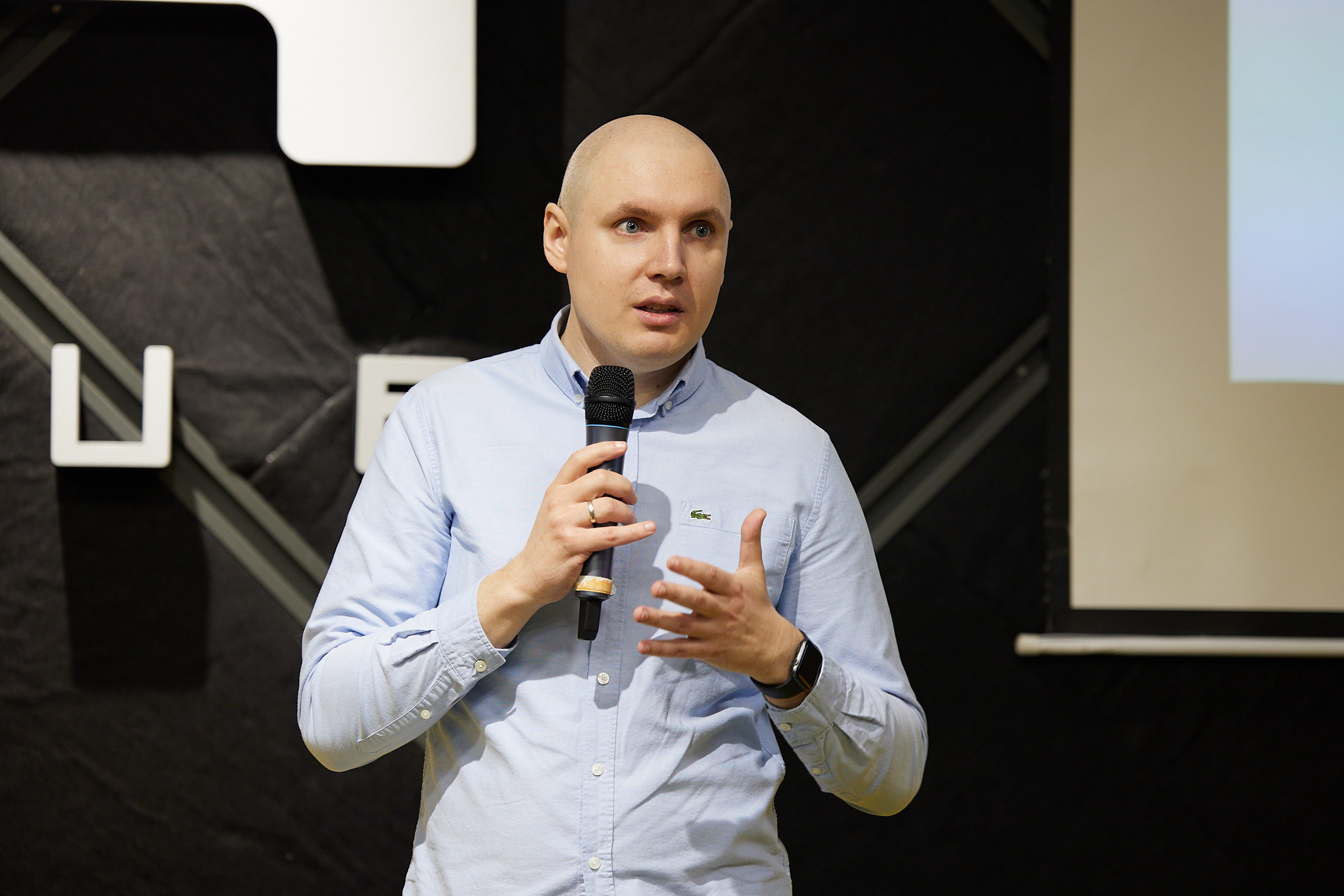
Other indispensable preconditions include safety of road infrastructure and the mine contamination status of territories, the performance of the National Police and the SESU under the arrival time standards, the availability and condition of the emergency warning system (air raid alert) and defense fortifications. Other, optional criteria include the general security situation in the Hromada (armed attacks at government officials) and any mine threat related incidents causing civilian casualties and fatalities.
“It is critical to analyse the perception of security in Hromada. Presently, we see attacks at volunteers and civil activists. During the electoral period, candidates and other persons may run the risk of attacks. It may affect the public attitudes and demotivate the turnout. A similar tactics might be used by Russia,” explains Anatoliy Bondarchuk, analyst at the Civil Network OPORA.
In addition to the security component, the audit includes the assessment of social, economic, and political situation (resumed democratic processes) in Hromada. It means the functioning of banks, access to the Ukrainian radio and television, functioning of courts, the capacity of the State Register of Voters, the possibility to recruit the PEC members, and other factors.
Advantages of OPORA’s tool include the fast data collection not calling for any additional costs, a wide applicability, and trabsparent results. The suggested assessment matrix may be used for national and local elections alike.
“The CEC had had preliminary consultations with OPORA about the methodology of the audit. We intend to make the civil and political section mandatory, rather than optional. It is about the functioning of local cells of political parties and NGOs capable of monitoring elections, as well as local media,” highlights Serhiy Dubovyk, deputy chairperson of the CEC.
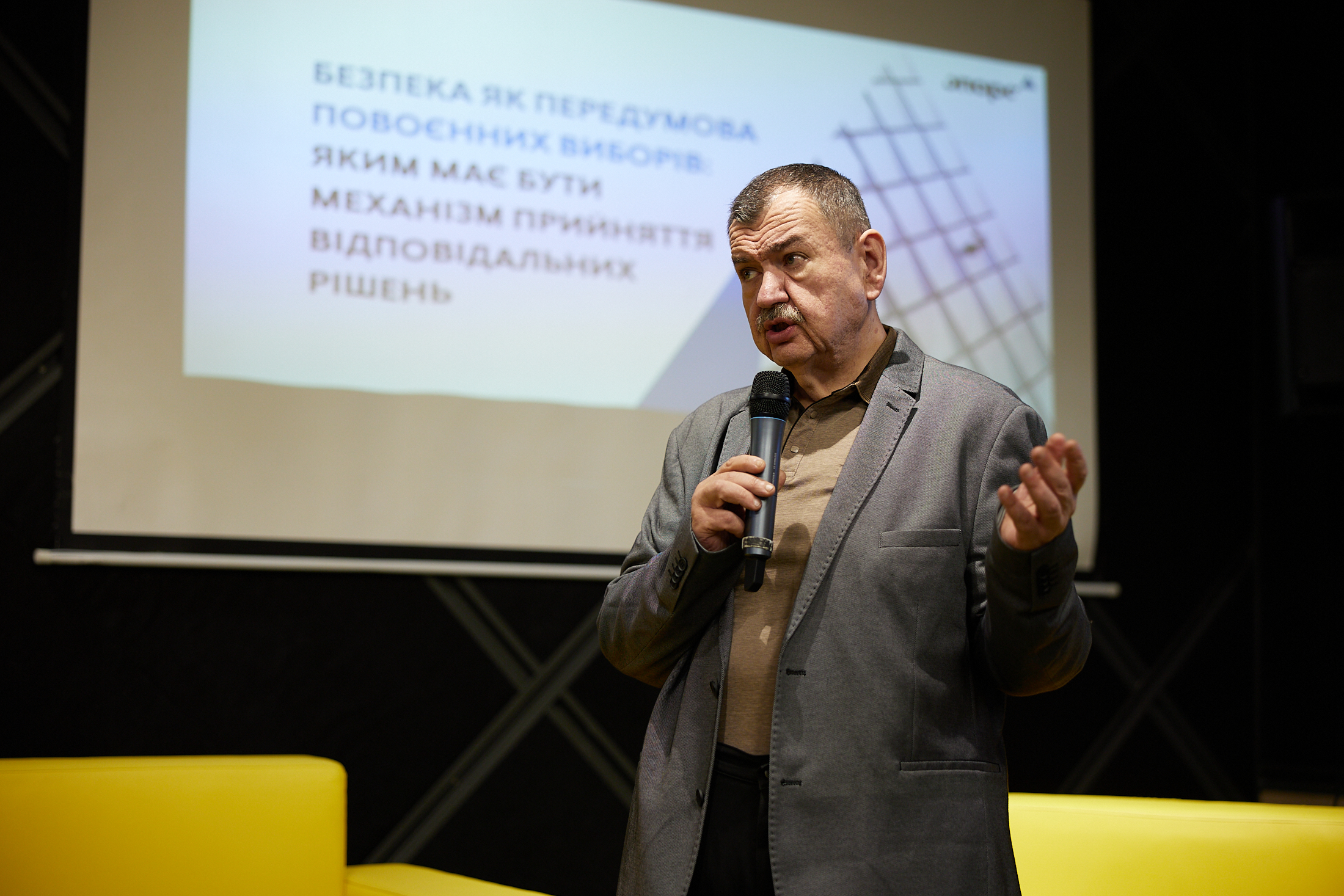
In addition, OPORA suggested the types of Hromadas that must be covered by the audit. They are:
- located within 60 km from the frontline or a border with Russia;
- had been under temporary occupation for over 1 year;
- over 50% of the premises of polling stations are not fit for the organization of the vote.
During the event, OPORA analysts presented the findings of security screening in 4 Hromadas: Zaporizhzhia, Poltava, Kryvyi Rih, and Snihurivska (Mykolaiv Oblast). Each Hromada is different in terms of proximity to the frontline, budget, and population. One Hromada, Snihurivska, had been under the occupation.
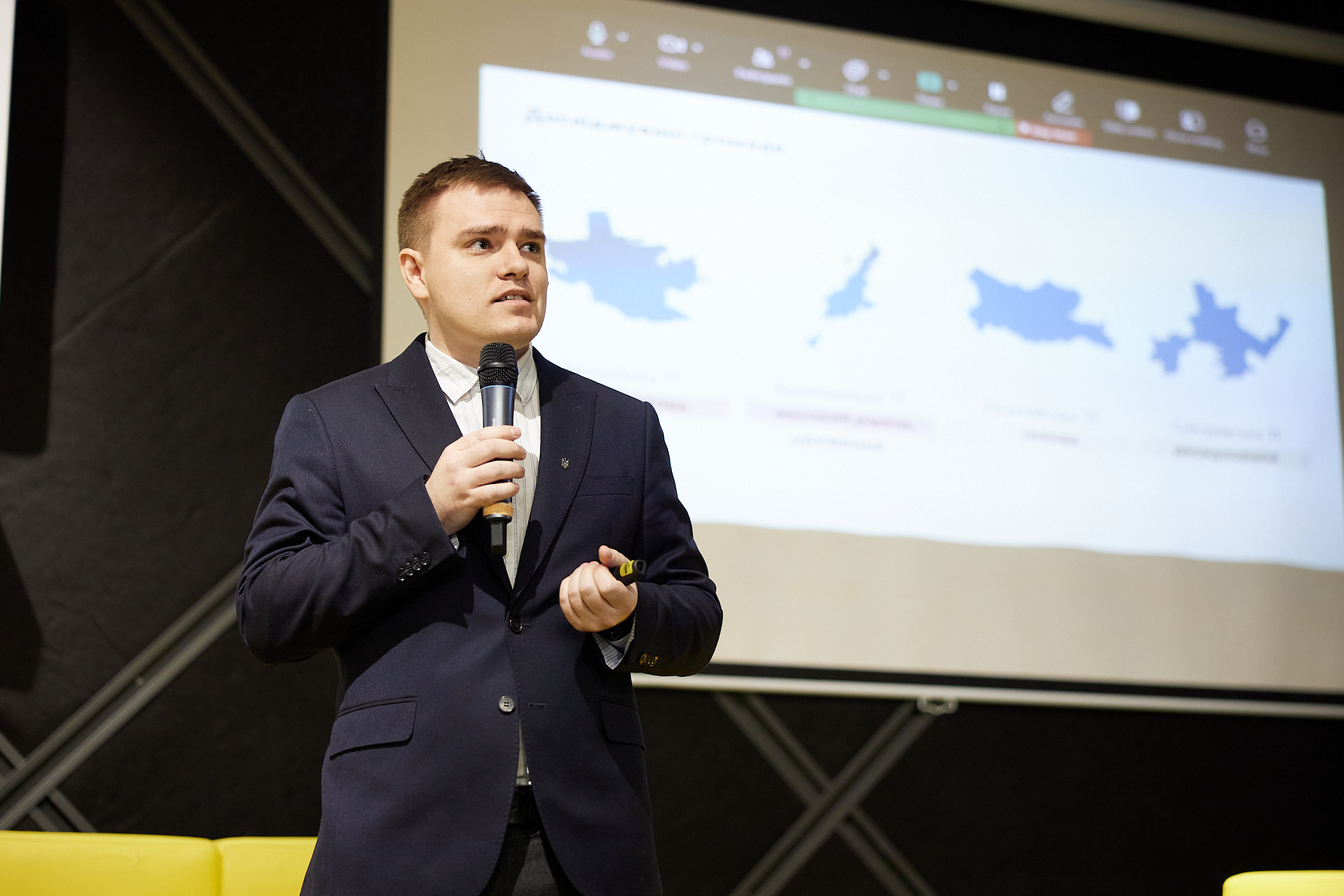
Damage or destruction of polling stations have been documented in all Hromadas sampled for the audit. In Snihurivska and Kryvyi Rih Hromadas, several polling stations had been destroyed; in Zaporizhzhia, some stations have been slightly damaged. In the frontline Snihurivka, 31% of polling stations are not fit for voting.
On the other hand, the best situation with accessibility of bomb shelters has been found in Zaporizhzhia. In Kryvyi Rih and Poltava, about 80% of polling stations have the bomb shelters accessible within the 1.5 km. Snihurivska Hromada has only 46% of polling stations with access to bomb shelters.
READ MORE: Conclusions and Recommendations From OPORA Experts in an Easy-To-Read Brief Format can be viewed on the dashboard.
“The audit criteria shall be set in the law to avoid misinterpretation depending on political relevance or benefit for individual local goups involved in budget allocation,” underscores Andriy Savchuk, data analyst at OPORA.
In addition, the criteria to identify the possibility of elections shall be objective, and the decision-making authorities shall act within their mandate. Civil Network OPORA suggests establishing joint local interagency commissions in the Hromadas to collect data for preliminary assessment. Next, the data will be transferred to the governmental interagency commission (composed similar to the Interagency Commission on Technogenic Safety and Emergencies). The final decision shall be made by a politically authorized entity.
“Recognizing the possibility of not holding elections is not an end in itself. The key objective is to enable local authorities and local self-government to eliminate the barriers on the way to elections,” says Pavlo Romaniuk, legal advisor at OPORA.
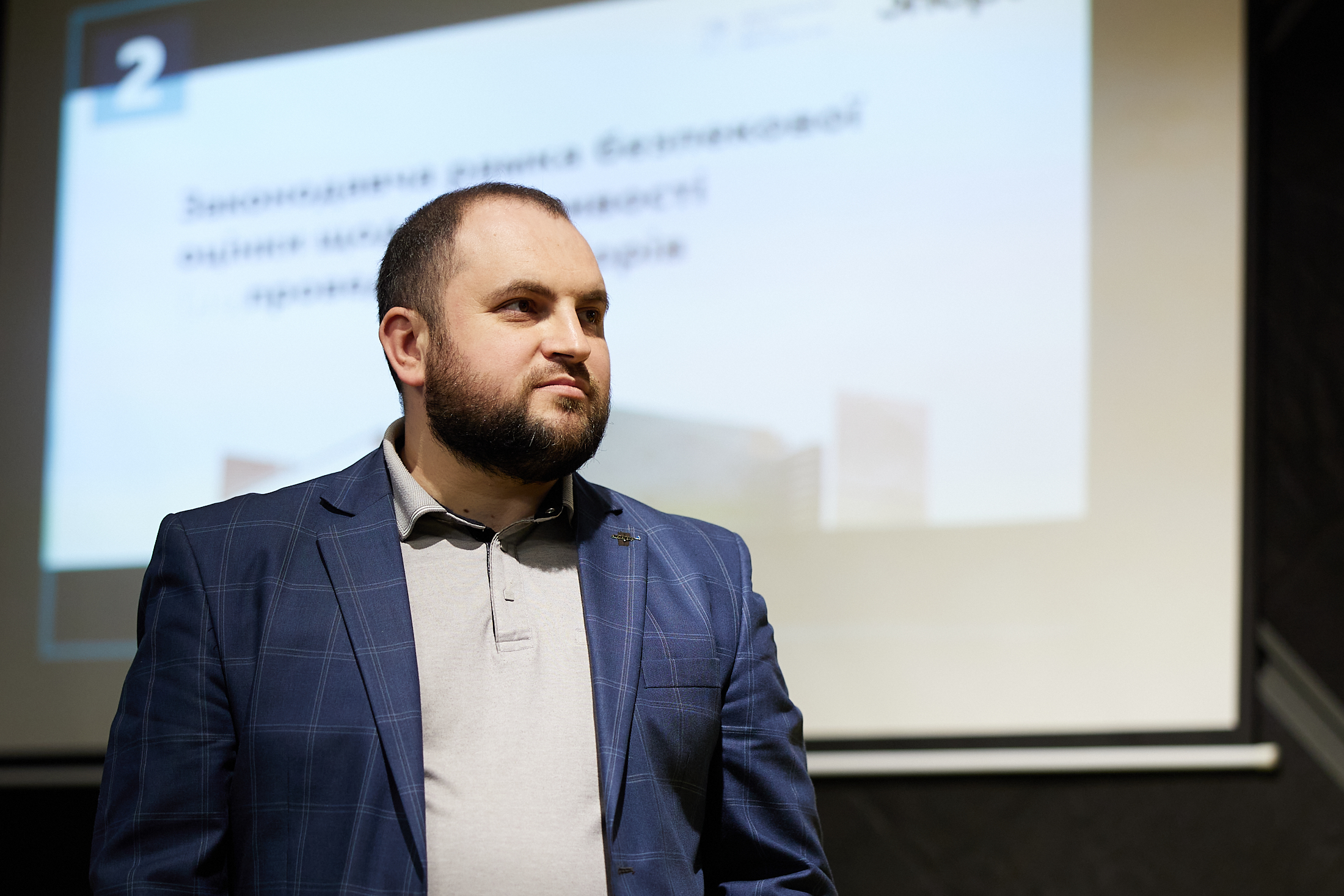
After the security audit presentation, Olga Aivazovska, Chair of the Board at Civil Network OPORA, reiterated that we may face one month only between the lifting of the martial law and the start of election process. That is why in the preparation to post-war elections it is crucial to identify a decision-maker on security preparedness of Hromadas.

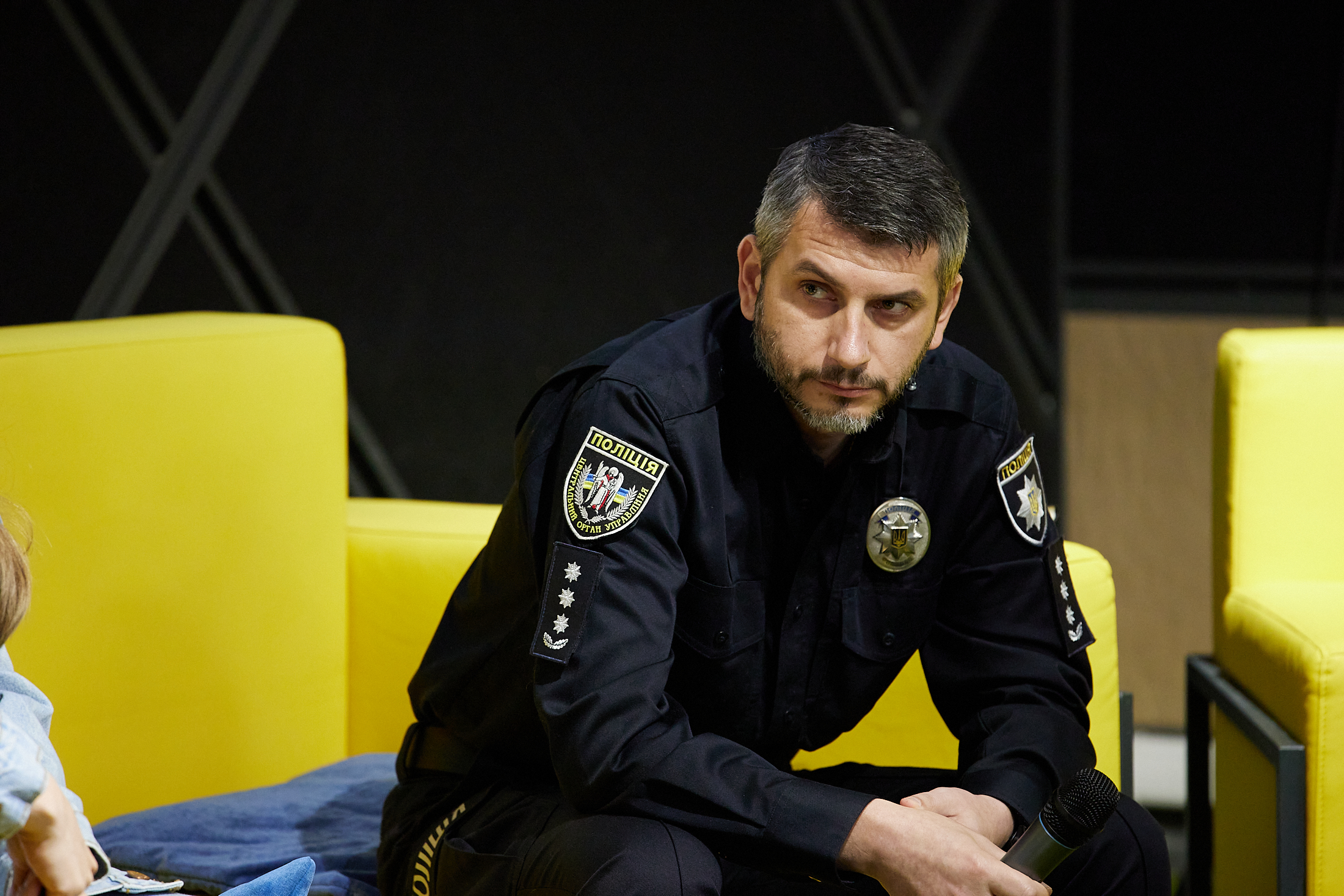

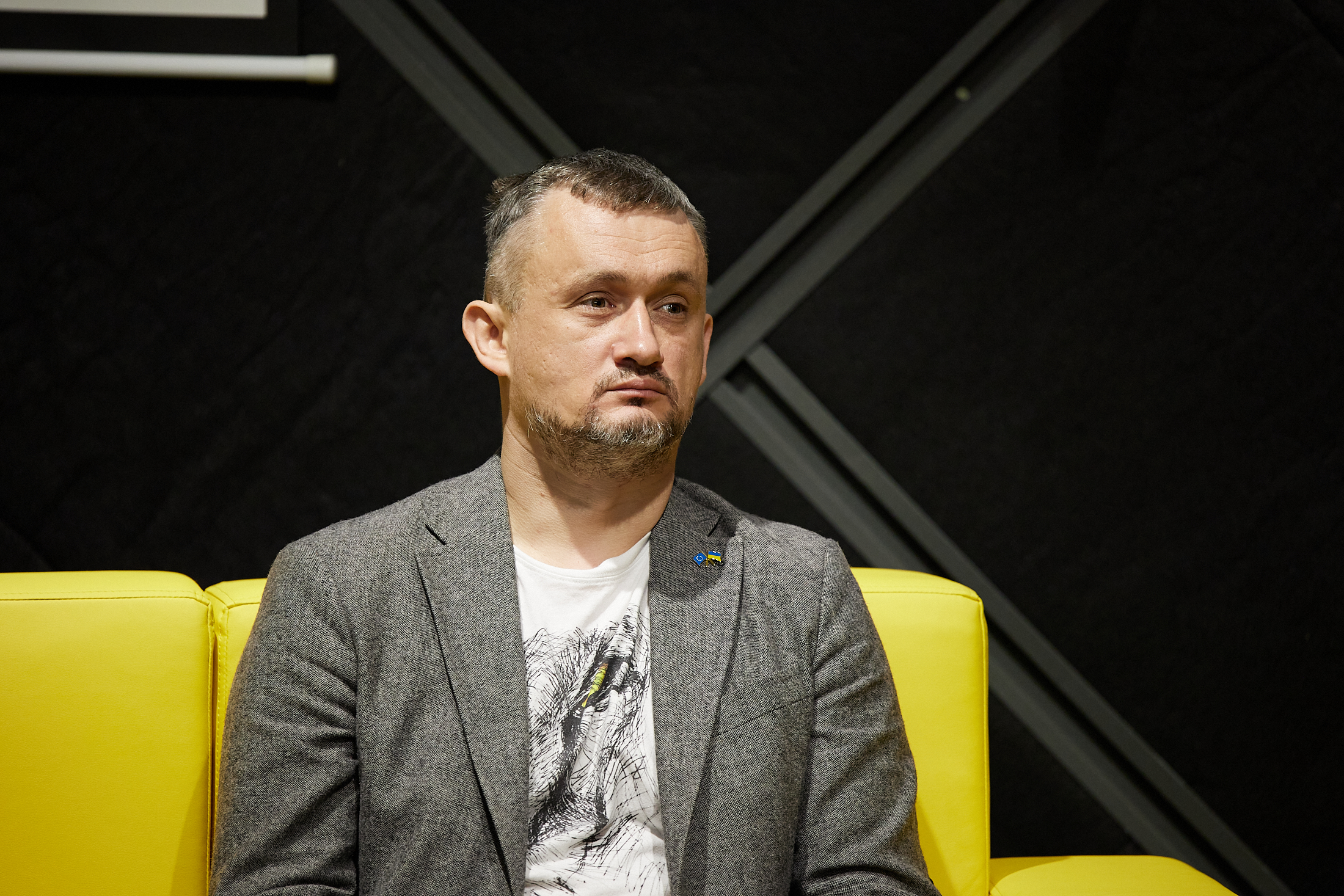
More Photo
Alina Zahoruyko, a People’s Deputy and Chair of the Sub-Committee on Elections and Referenda at the Committe for the Organization of State Power, Local Self-Government, Regional Development, and Urban Planning of the Verkhovna Rada of Ukraine, believes the Parliament could be the kind of authority. According to her, the Government, the NSDC, local self-governments, and the CEC may also provide their situational awareness and proposals. However, to make sure the decision is transparent and inclusive, it shall be passed by the Verkhovna Rada.
Mykola Rubchak, a director of the Department for Strategic Planning and Regional Policy at the Ministry for the Development of Hromadas and Territories of Ukraine, thinks it fit to raise an issue of legal liability for persons jeopardizing the holding of elections. Moreover, he believes that the Security Service of Ukraine shall be involved in the selection of candidates to join the polling station commissions. According to him, a pilot project for security screening may be commissioned by the head of Government or another official from the Cabinet of Ministers.
The option of opening polling stations in bomb shelters has been considered on a separate note. Anatoliy Seredynskyi, a deputy chief of the Department for Preventive Activities, underscored that in such a case polling station addresses need to be changed. He also highlighted that additional security measures will require additional funding. Seredynskyi also expressed an opinion that the approach to post-war elections will depend on how the martial law is lifted and the active phase of hostilities is ended.
In conclusion, the participants at the meeting briefly discussed security challenges for the out-of-country voting, since according to the recent MFA data, 8.9 mln of Ukrainian citizens stay abroad. Presently, the powers of the National Police extend to territories of embassies and consulates of Ukraine only, but in case of opening aditional polling stations outside the diplomatic missions, we need to have solutions for their protection.
The event took place with support of the Rennaissance International Foundation. Opinions presented in the discussion do not necessarily reflect the position of the Rennaissance International Foundation.
